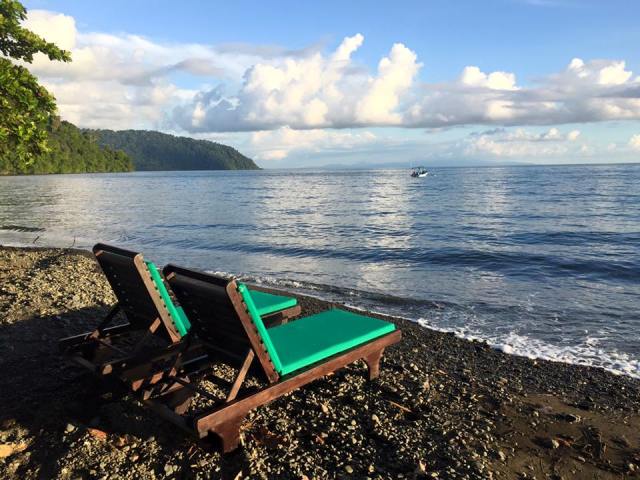December is peak coffee picking season in Costa Rica. El Toledo Organic Coffee Tour & Farm in Atenas, Costa Rica shows you all about coffee from bean to cup.
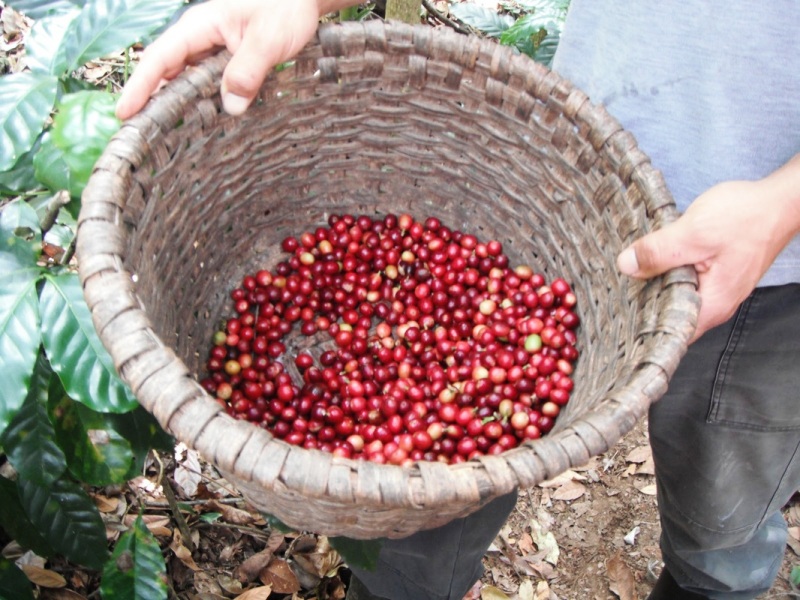
Christmastime in Atenas, Costa Rica is always characterized for me by coffee picking season.
December is the peak of coffee picking season in Costa Rica. All over Atenas’ green mountainsides during the day you can find workers (mostly Nicaraguan) carrying their plastic baskets filled with red coffee berries to collecting trucks. The sweet-sour smell of coffee beans being washed and processed is prevalent at the beneficios de café, or coffee processing plants. And when they start roasting, the rich aroma fills the Atenas valleys.
Coffee trees are the quintessential Costa Rican Christmas tree – dark green, waxy leaves and bright red coffee berries on short, bushy trees pruned to stay small and manageable. The only things missing are tinsel and lights.
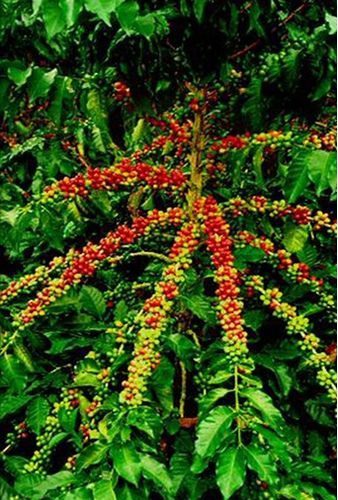
Costa Rica has become known around the world for its high quality coffee, but the “golden bean” has only been part of Costa Rican culture since 1808. That year, Governor Tomás de Acosta took a gamble and started a coffee plantation, making Costa Rica the first Central American country to join the fast-growing industry. Costa Rica’s highlands and mountains had perfect conditions for growing coffee: rich volcanic soil, a dry and a wet season, and relatively stable temperatures. Throughout the years coffee has driven the country’s economy and developed its society.
In Atenas, coffee has played a central role in the town’s 148-year history. From small independent coffee producers to the large cooperative of more than 1,000 coffee farmers with CoopeAtenas R.L., coffee is a principal business in Atenas.
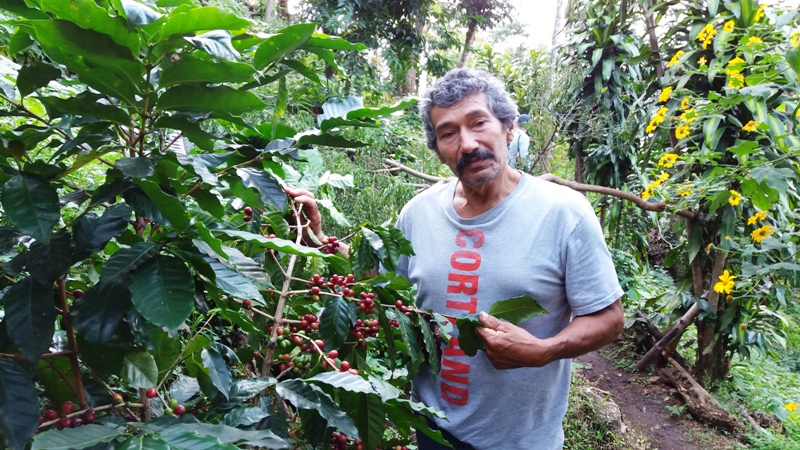
Up in the cool, green mountain neighborhood of San Isidro in Atenas, El Toledo Coffee is one of only a handful of organic Costa Rica coffee farmers. At 3,609 feet (1,100 m), the higher altitude provides perfect coffee-growing conditions and there are at least 700 coffee farms here – although only seven families in a small association produce organic coffee on about 40 acres.
El Toledo has the distinction of also offering the only coffee tour in Atenas – the El Toledo Organic Coffee Tour. Gerardo Calderon and his wife, Rosario (Sole) Vargas, their sons Raul and Gabriel Calderon, and Gabriel’s wife, Ivette, all run the small family business.
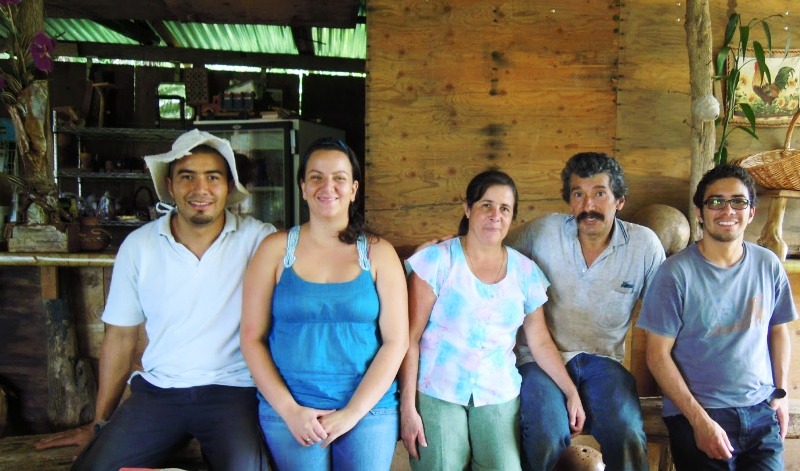
Inherited from Gerardo’s father, Tito Calderon, 88, Gerardo changed coffee production after 60 years on the family’s nearly nine acres to being mostly organic 18 years ago.
“In Atenas I am the only farmer selling coffee that is organic,” said Gerardo Calderon. “Our motive was for health. It wasn’t for money or a fad, it was for health. I realized that working with chemicals will lead to suffering later in life.”
Gerardo then began adopting principles of permaculture – an agricultural philosophy of working with, rather than against nature. He began planting more species of trees and leaving trees in the plantation – mostly fruit-bearing to attract birds. The shade helps protect the coffee, the diversification lends balance against a monoculture, and tour participants love the bird-watching. He also plants beans and corn among the coffee trees for multiple crops.
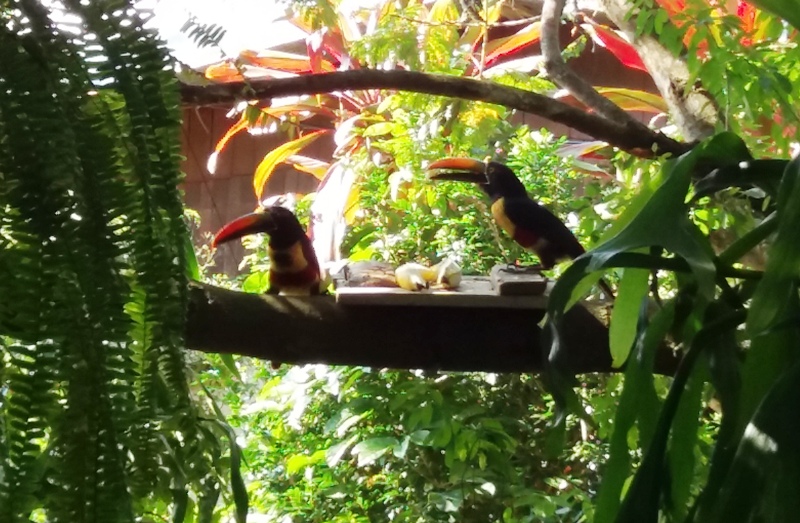
“El Toledo Organic Coffee Tour, besides being a coffee tour, is dedicated to teaching people that we can live in harmony with nature!” noted Gerardo.
The Atenas coffee tours are held daily by reservation. Cost for the two-hour tour is $20 per person; and children under 10 years old are free. The very informative and well-done tour will show you how Gerardo and his family grow coffee, process the beans and roast them into three finished coffee products, all right on their farm. You also will learn how to make the perfect cup of coffee for your personal taste. You can buy El Toledo organic coffee at the Atenas Farmer’s Market and at a few boutique hotels in Atenas.
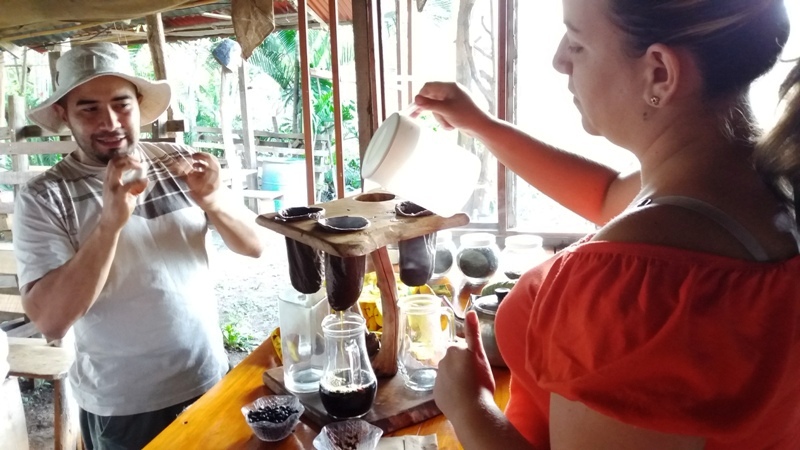
For Gerardo, the tradition of coffee in Costa Rica has been a love affair his whole life. “My parents taught me to esteem and love the coffee plants because that is what gave us our livelihood,” he said. “But I learned to appreciate a cup of coffee and enjoy coffee that we produce and grow here on our farm. It’s the happiness of a moment drinking coffee with my family. It’s love.”
Article by Shannon Farley




